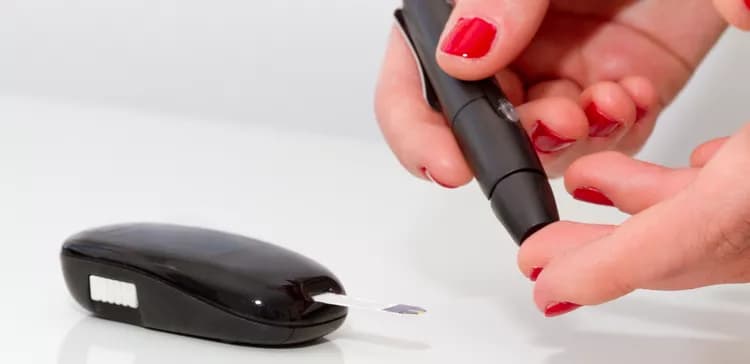
A New Way To Reduce Surgery Complications Stemming From High Blood Sugar
Researchers identified a new way to lower the risk of complications after joint surgery, using a simple blood test. Patients with diabetes are more likely to need joint replacement surgery but also have a greater risk of serious complications after surgery, including heart attack, stroke, and wound infections, because of their underlying diabetes. Current guidelines suggest testing diabetic patients for stable glucose control prior to surgery, but the recommended blood test or marker is slow to detect change, and does not correlate well with risk of surgical complications. Now, Thomas Jefferson University researchers have found that a different blood-sugar marker is able to predict patients -- both diabetic and non-diabetic -with highest risk of complications more accurately, and detect changes in glucose control much faster, which could potentially change clinical practice.
"This study gives us a better method for identifying patients who need intervention prior to surgery. It could be immensely useful in preventing life-threatening post-surgery complications," said senior author Javad Parvizi, MD, Vice Chairman of Research and Professor of Orthopedic Surgery at the Rothman Institute at Thomas Jefferson University. The research was published November 15th 2017 in the Journal of Bone and Joint Surgery.
Many diabetic patients are familiar with the HbA1c blood test. It is often given at the doctor's office to measure how well blood glucose is maintained over a period of 2-3 months. The American Diabetes Association (ADA) recommends a patients' HbA1c levels stay below seven percent to prevent general complications from diabetes. However, there are no current guidelines governing glucose levels prior to surgery, and there has been little evidence to showing that staying within this level will help prevent complications from surgery. In addition, using this test can delay surgery by many months while the patient's HbA1c levels come into range.
The investigators tested the blood levels of a similar glucose-monitoring compound called fructosamine. Its rapid detection of change in glycemic control (14-21 days versus 120 days for HbA1c), made it an intriguing candidate for use in the surgical setting. "To our knowledge, this is the first study to test whether blood fructosamine levels could give us better information about glycemic control before surgery," said Dr. Parvizi.
In order to test its ability to predict patients with a higher risk of complications, Dr. Parvizi and colleagues enrolled 829 patients who had a planned total joint replacement between 2012 and 2013, and assessed their glycemic levels via the traditionally used maker called HbA1c, side by side with fructosamine.
By using the same relative cut-off level for both HbA1c and fructosamine (seven percent HbA1c correlated to 292 micromolar/liter of fructosamine) the researchers examined whether patients who tested above these thresholds had higher likelihood of complications.
The results showed that high HbA1c levels did not predict an increased risk of complications. However, high fructosamine levels were associated with a greater risk for deep infection, readmission, and reoperation. In addition, 35 percent of patients with fructosamine levels higher than the cut-off, had no history of diabetes, indicating increased risks in patients who might not otherwise have been identified.
"The fact that we can use this test to detect poor glucose control in non-diabetic patients may be significant, and could help us improve outcomes for non-diabetic patients as well," said first author Noam Shohat, MD, a research fellow affiliated with the Rothman Institute at Jefferson. Clinical and preclinical studies have shown that even short-term spikes in blood sugar can impair the immune system (specifically innate immunity) and the body's ability to fight infection. The short-term changes detected by fructosamine are also associated with changes in cytokine levels, another factor in promoting strong immune responses to infection.
"Because of its promising role in determining who has poorly controlled glucose levels, we have already begun to use the fructosamine test, at our institution to determine who is at high risk of complications and allocate resources to optimizing the glycemic control in these patients" said Dr. Parvizi.
There was no external funding for this research.
Materials provided by Thomas Jefferson University. Note: Content may be edited for style and length.
Disclaimer: DoveMed is not responsible for the accuracy of the adapted version of news releases posted to DoveMed by contributing universities and institutions.
References:
Noam Shohat, Majd Tarabichi, Eric H. Tischler, Serge Jabbour, Javad Parvizi. (2017). Serum Fructosamine. The Journal of Bone and Joint Surgery. DOI: 10.2106/JBJS.17.00075
Related Articles
Test Your Knowledge
Asked by users
Related Centers
Related Specialties
Related Physicians
Related Procedures
Related Resources
Join DoveHubs
and connect with fellow professionals

0 Comments
Please log in to post a comment.